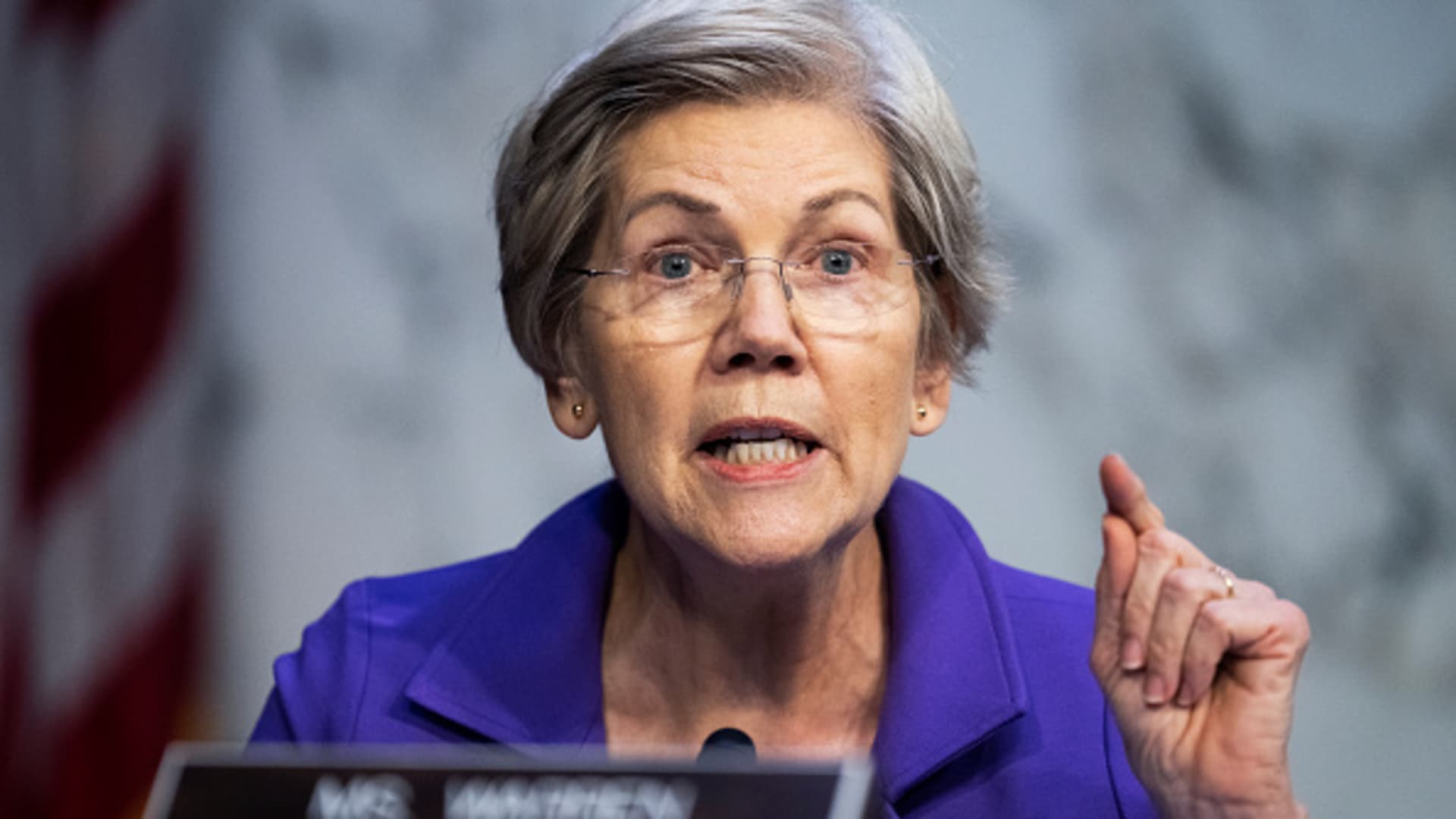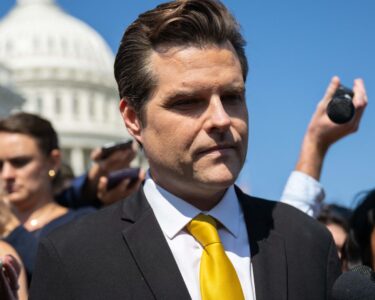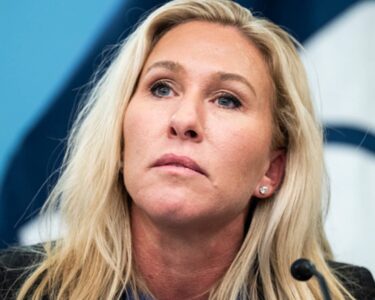WASHINGTON — Sen. Elizabeth Warren on Tuesday pushed Fed Chair Jerome Powell to remove himself from the central bank’s review of the Silicon Valley Bank collapse, accusing him of allowing dangerous practices that helped to cause its failure.
The Massachusetts Democrat contended Powell’s “actions to allow big banks like Silicon Valley Bank to boost their profits by loading up on risk directly contributed to these bank failures.”
“For the Fed’s inquiry to have credibility, Powell must publicly and immediately recuse himself from this internal review,” Warren said in a statement. “It’s appropriate for Vice Chair for Supervision Barr to have the independence necessary to do his job.”
The Fed declined to comment to CNBC.
The Fed on Monday announced a review of the supervision and regulation of SVB after its takeover by financial regulators prompted the largest bank failure since the 2008 financial crisis.
“The events surrounding Silicon Valley Bank demand a thorough, transparent, and swift review by the Federal Reserve,” Powell said in a statement Monday.
SVB, a 40-year-old institution that catered to tech startups and venture capitalists, shuttered on Friday after the Federal Deposit Insurance Corporation took control of its deposits.
On Wednesday, the bank announced it had sold $21 billion worth of its securities at a nearly $2 billion loss and said it needed to raise $2.25 billion to continue operating. The bank’s stock price plummeted more than 60% after the announcement, as customers began withdrawing their money.
Federal regulators, including the Treasury Department, announced Sunday that they would backstop bank depositors through FDIC insurance. The agency created the Deposit Insurance National Bank of Santa Clara to hold the insured deposits from SVB.
Market analysts have said that regulators failed to acknowledge SVB’s risky business practices, which relied heavily on corporate deposits over retail. It also held a large share of asset loans and securities.
SVB’s collapse has fueled fears of similar issues at other banks.
On Sunday, New York State regulators shut down Signature Bank, a major lender in the cryptocurrency industry, to help stave off a bigger financial crisis. As with SVB, all deposits are protected by the Fed’s emergency lending authority.
Warren, a leading congressional critic of Wall Street, has pointed to SVB’s collapse as another reason to add safeguards around major U.S. banks. She has also sought more information on what led to the institution’s failure.
Warren sent a letter on Tuesday to former SVB CEO Gregory Becker seeking details on what she called “successful efforts” to exempt the bank from protections under the Dodd-Frank Act passed after the 2008 financial crisis.
The letter contained several examples of Becker appealing to lawmakers and making the case that the bank should not be subject to certain federal oversight due to its size and structure. Warren wrote that the lobbying efforts “culminated” in the Economic Growth, Regulatory Relief, and Consumer Protection Act, which eased some Dodd-Frank rules. Former President Donald Trump signed the bill into law in 2018.
“Had SVB been subject to Dodd-Frank rules undone by EGRRCPA the bank would have been required to maintain stronger liquidity and capital requirements and conduct regular stress tests that would have required SVB to shore up its business to weather the type of stress it experienced last week, Warren wrote. “But because you chose to exempt SVB from those stronger rules, the bank was in a much weaker position to withstand the bank run.”






